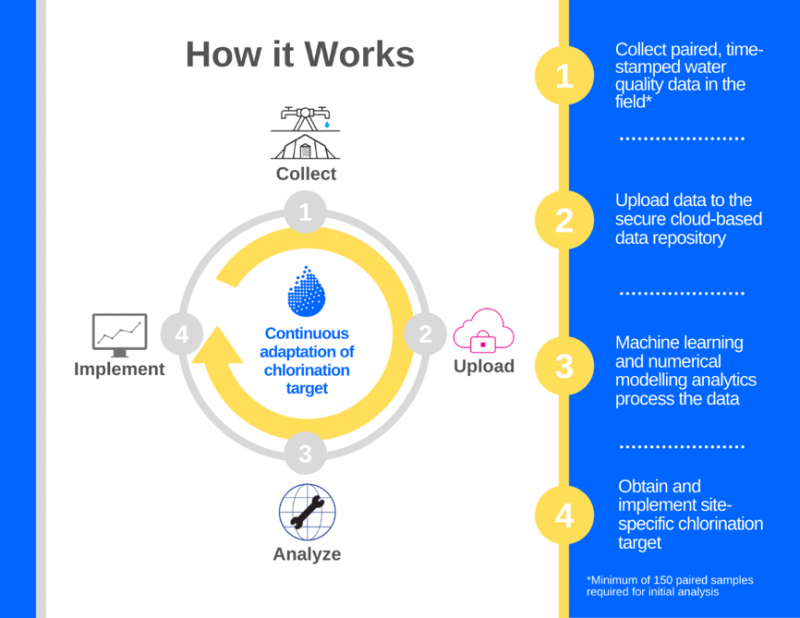Introducing the Safe Water Optimization Tool (SWOT)
Published on by Water Network Research, Official research team of The Water Network in Technology
Researchers at York University's Dahdaleh Institute for Global Health Research, in partnership with Médecins sans Frontières (MSF/Doctors Without Borders), have launched the Safe Water Optimization Tool ( SWOT ), the first concrete application of artificial intelligence for improving safe water supply in humanitarian operations.
SWOT is a new web-based tool to help aid workers ensure water is safe to drink in refugee and internally displaced persons (IDP) camps. The tool is currently being used in camps in Nigeria, Bangladesh, and Tanzania.

'What this tool does is it enables us to use the local data to figure out how we need to treat the water so it is safe in those local conditions. It's a complete game-changer in that respect. We're getting site-specific, evidence-based recommendations for water treatment rather than a universal guideline based on no field evidence,' says Syed Imran Ali, founder and lead, SWOT.
Waterborne diseases such as cholera, dysentery and hepatitis E are some of the leading threats facing displaced populations and are among the leading causes of preventable death in refugee camps. Researchers say at a time when countries are fighting a world-wide pandemic like COVID-19, tools like this can prevent further healthcare crises.
SWOT builds on more than five years of water safety research carried out in refugee camps in South Sudan, Jordan, Rwanda, Tanzania, and Bangladesh. Researchers from York University's Lassonde School of Engineering, Department of Mathematics and Statistics, and School of Global Health all collaborated on the tool.
James Orbinski, inaugural Director of York University's Dahdaleh Institute for Global Health Research said: 'One of the key and often forgotten and most effective interventions in terms of reducing the risk of spread of COVID, is water, sanitation, and hygiene.
'In the North, we talk about personal protective equipment and hand washing. We assume that the water itself isn't contaminated and we're using water to remove contaminants from our hands. In situations like refugee camps and internally displaced persons settings, if you're asking people to use water that itself is contaminated you could be spreading, through that contaminated water, infectious diseases. So, what this tool does is it provides a very clear approach to maximizing or optimizing safe water.'
The Dahdaleh Institute for Global Health Research, home to the highest calibre of global health research with real-world impact, was founded in 2015 at York through an endowment from the Victor Phillip Dahdaleh Foundation. The donation is the largest by an alumnus in the university's history.
For more detailed information on the SWOT tool visit the York University website here
Attached link
http://www.youtube.com/embed/aglXq6wOXfYTaxonomy
- Toolkit